Wametnym event of the week was the opening of the Russian-language website of the European External Action Service (EFIN) – in fact, the official EU website in Russian. The main attention of the readers it attracted no official documents and news, and the project entitled “Review of misinformation.” As part of this project on the site every week published a brief analysis of fakes of Russian propaganda – from the fantastic stories about “who fought in Chechnya Arseniy Yatsenyuk” to notable only eye professional distortion of translation, language and style of manipulation and other techniques from the arsenal of the Russian (and not only Russian) press and television.
As stated in the report on the official website of the “EU in Russia” Facebook, the EU “strategically important to make sure that its policies have been heard and understood by those who prefer to read in Russian.”
The site will publish materials on sanctions against Russia, the Ukrainian domestic issues, articles on the Middle East and other European Union actions.
The “Overview of disinformation”, which is also part of the new site, there are actually quite a long time – from November 2015. Many commentators in the Russian segment of social networks were quick to compare it with the popular Russian project “Lapshesnimalochnaya” , which is a former employee of the RIA “Novosti” Alexei Kovalev . However, Kovalev himself, and sources familiar with the way prepared “Review of disinformation”, noted that these initiatives different formats and different target audience.The project of the European External Action Service is primarily aimed at journalists who can use it to tell your readers about the most egregious cases of deliberate lies and juggling by the Russian media, as well as NGO workers and civil society activists.
“Reviews of disinformation” – the number of weeks – had come out 14. The last of these , for example, is devoted to the Russian media reaction to theBBC film about the corrupt Putin and French film about Evromaydane, stories about militants LIH in the ranks of the Ukrainian nationalists and mysterious map with quotations from the Koran and address the American laboratory to develop biological weapons in Ukraine, which allegedly found the FSB – is only a small part of the list.
Authors of the project “Review of misinformation” looking for fakes in Russian and foreign mass media themselves, and attract volunteers. Learn more about this work, Radio Liberty said one European diplomat familiar with the activities of “Operational Working Group on Strategic Communications”, East StratCom the Task the Force , created in March 2015 of the Council of Europe’s decision to oppose the Russian propaganda.
– How and when did the idea of the project? What is its purpose, what audience it was designed?
More time is spent on what can be called positive, positive communication work supporting EU-Russia relations in general and the fight against misinformation – a small corner
– “Overview of misinformation” spread since early November. It is important to emphasize that the teamEast StratCom deals not only with analysis of cases of misinformation – it is only 10-20% of the time. Rest of the time is spent on it to support the EU’s communications in the countries of south-eastern neighborhood as a whole. For example, today in Ukraine leaves a number of television programs to the anniversary of the Maidan. It is a series of videos about the trade agreement between the EU and Ukraine. That is much more time actually spent on something that can be called positive, positive communication work supporting EU communication in general, and the fight against misinformation – a small area.
Why is the “Operative Working Group” involved in this? Because in the general mandate, under which it works her team, which was adopted at the Council on Foreign Affairs in March 2015 the Council of Europe of the year, said that the aim of this work should be spread information about the EU in the countries of “Eastern Partnership” , improvement of the media in these countries and, finally, a reflection of the actions that we see mainly in the Russian media, which can be described as disinformation.
– That is kind of the first line of defense in the information war?
We do not recognize the word “information war”
– We, the diplomats, do not recognize the word “information war”, and you will not find them anywhere in the publications on this website. The purpose of the diplomats – in preventing escalation. They are not engaged in the information war. “Task Force” collects and displays the cases of misinformation, which pay attention to the volunteers and volunteers. Then this information is put together and distributed in the hope that some of the media will make it a full-fledged publication. Therefore it is very important to understand that the authors specifically modify the “Browse” or information on the website or in the newsletter. They are specifically left a raw material which can be used by those who have a true media. Website of the European External Action Service is not. “Overview of misinformation” depends entirely on volunteers – they are journalists, activists, who on a voluntary basis find something and say, “We have seen such a case, we found evidence that this is a misinformation.” Then this information is inserted in a certain database. And thus formed a bunch of cases of misinformation – is for those who want to do about this publication in these media.
– Location information is received? This is mainly Russia, Ukraine, the Baltic countries?
– Including the Baltic countries, but also from the Ukraine, Russia, all the countries of the “Eastern Partnership” – this is Georgia, Moldova, Belarus.And, of course, more of the countries – EU members. Interesting not only Russian-language media, but in general the so-called pro-Kremlin disinformation. That is, when there is, first of all, misinformation, and secondly, this misinformation can be somehow linked to what is published in the government-controlled Russian media.
– What techniques are most often used by Russian propaganda and whether they can somehow be classified?
– There are four basic types. The first – a “strategic disinformation” . A typical example – “Ukraine is ruled by the Nazis, who came to power after a coup organized by the EU and the US.” This statement is not supported by any facts (just look, for example, the results of Ukrainian elections), but it methodically blurts out again and again, and the audience gradually gets used to it. The second type of misinformation – bullying . A typical example – feykovye reports of a terrorist threat from Ukrainian battalion “Azov”. The goal is clear: frightened people are much easier to manipulate. The third type – use conflicts within society , real or potential.A typical example – the case “raped migrants Berlin girl Lisa.” Finally, the fourth type is conventionally called the “Western media write that …” .Here they come up from the ground or a story, or distort beyond recognition the real story, or take some sort of a pro-Kremlin theme and extend it with reference to all kinds of sites unknown to anyone.
– How much is now the Russian propaganda influence in Europe?
– Russian or pro-Kremlin propaganda propaganda (because it can be supported or not supported in Russia, it is very important) are often based on existing fears. For her, it is very important to spread the idea that the society – this is a very dangerous place, where a steady hand is needed, and whose clear that nothing had to fear. Migrants – it really is a problem of the European Union, and this problem can be used to undermine the idea that, for example, Germany – is a good place to live. The well-known case – all the same thing, “Lisa girl” , which was widely reported. This is a good example: there is a problem – migration. Then it is decorated, it is taken in case of a girl who ran away from their parents, as happens at that age, it is called “the rape of migrants and refugees.” After that, the demonstration dramatized, and it is unclear what the representatives of the Russian-speaking minority say that Russian-speakers are now going to dozens, if not hundreds of thousands, to return to Russia. That is taken existing phenomenon and is used as a motor in the transmission of certain narratives.
The action against the Russian-speaking German immigrants in Kaiserslautern:
– The story of a girl Lisa, perhaps, will have to formalize the story of the author, a journalist of the First Channel of Ivan the Good , even legal consequences . I must say that in Russia, even in an environment which is called and considered liberal, many disagree and believe that if the German law enforcement agencies eventually attract the Good to justice, it will be a violation of the principle of freedom of speech. Do you agree with that?
– This is not a complete legal proceedings in one EU country, it’s out of office “Focus Group”.
– Still, the project participants who receive information from the volunteers, then it tabulated publish – whether they see a part of its mission termination disinformation practices, including legal means?
– No, the problem is not the point. The problem, if very much to this philosophical approach in obtaining high-quality communication between East and West. This communication is now systematically corrupted, there are cases of misinformation from the pro-Kremlin position. Operation “Focus Group” is to show the observations that made the project participants, volunteers, show these cases the journalists and the media, NGO activists, which then may, if they deem it appropriate and important to cover this issue. The success and the result of that talk about it. And what will already draw conclusions society and the state, some instances – it is not part of their mandate.
– You say that on the basis of the media reports are prepared some publications, more detailed incriminating materials. Tracked whether such publications in Russian media?
– Not only in Russian. “Task Force”, of course, like any structure, which wants to have some feedback from your job, notes with great pleasure, as the information from the “raw” materials leads to some publications. But again, I stress, it is not the media and not a competitor to any media. This was a very interesting post on Facebook from Roman Leybova known figure Runet. He said those who say that what makes the EU in the framework of the project “Review of misinformation,” – it’s just a boring version of what makes Alex Kovalev. He says the right thing: what makes Kovalev – is very good, but this particular some stories, very loud, and in the “Review of misinformation” going to the base case data so you can track trends.
– And what is a tendency for the work of this project?
– Promotion of changes over time, of course. In summer, the main topic was the Ukraine. Then somehow suddenly, in one moment, Ukrainian topic died down. This coincided with the fact that Russia is beginning to take an active part in the events in Syria . And all of the information was the focus on Syria. Then there was the case with the Turks, the downed aircraft, and has already started a Turkish theme. Ukrainian theme continued but as a kind of a subtext for another promotion. For example, the well-known story about a bunch of events in the Middle East and Ukraine: that some militants LIH (. Organization banned in Russia – RS) begin fighting in the Donbass. There were some attempts to communicate. In recent years, there is a feeling that Ukraine has returned to the top. Perhaps this reflects some idea that we still encounter in the Russian formation of public opinion and political opinion in Russia that Ukraine has reached a certain point of the “final showdown”.Perhaps this reflects the idea that the Donbas conflict can be considered almost frozen, and have to find a new approach to the stories in Russia on Ukraine.
– It is always interesting – to follow the trends of how the machine works the Russian disinformation?
– Interestingly, in particular, because before the project is not a task – to identify whether it is a machine. There were well-known studies about the trolls in Olgino factories and so on, but the participants of the project – not intelligence, which is figuring out how to do it, for some orders, technicians, and so on. An interesting fact of the existence of fakes. It is important to draw public attention surrounding the presence of fakes, and to leave behind the public’s right to draw conclusions. Most of the time, as I said, goes to the classic cases of communication and diplomacy, it is a classic, you can say, conservative views in the field of diplomacy, communication.But since the European Council as the highest court in the political system in Brussels in March last year decided that the pro-Kremlin disinformation – it is a problem with this need to do something about it, but now the European External Action Service and engaged with this problem. But it is – a part of the whole system, it fits into the overall picture of what the EU is time to engage in better quality communications in its policy in the countries of “Eastern Partnership”.
– There are times that you volunteers send a link to a report or an article and say, look, fake one, and then it turns out that there is – all right?
– Yes, there were such cases. All cross-checked, to try not to make mistakes. The information should be treated with great caution, but a couple of cases was when the alleged fake was just a misunderstanding. What you would expect in such a situation.
– When constantly read these Russian fakie probably get used to everything, but there were stories that were forced to grab the head and thought: “No, but even so they could not come up with, say, show, print”?
!["Fotozhabu" depicting Arseniy Yatsenyuk as Islamic extremists]() “Fotozhabu” depicting Arseniy Yatsenyuk as Islamic extremists
“Fotozhabu” depicting Arseniy Yatsenyuk as Islamic extremists
– There was a story that Yatsenyuk actually a Chechen fighter that in his biography has been actively involved in radical Islamist groups in Chechnya. It’s a completely pointless attempt to disgrace the reputation of the politician from a neighboring country. Any sane person can hardly believe it, on the one hand, but on the other hand, it leaves some doubt about the individual Yatsenyuk.Clearly, this is all in the theory of propaganda known that you throw some big lie in the human side, no one will believe, but there is a view that there is no smoke without fire, and his image, reputation, image is under threat.
– Nevertheless, this story Yatsenyuk, who reportedly fought in Chechnya, could be one of the episodes of the criminal proceedings against the Ukrainians and Klyha Karpyuk , which is now being tried in Russia. That is a fantastic thing, but even things sewn to the very real criminal.
– This is just an example of what I mean. Some seem quite wild what they see opening up these lists fakie. They say, “Well, why do you pass such nonsense?” Then, this information still comes to some levels of society and becomes a sly already established fact. Or, as is also the case, the information completely wild, suddenly seizes some American blogs, and already by the Russian state channels say “Western media have reported that and then some.” That is, there is such a migration stories. The fact that today can be seen in some completely marginal network resources, tomorrow may suddenly become relevant. And that is why the authors of “misinformation Review” simply must, even when it is wild, marginal and meaningless to include it in the list.
– You say the task of the review authors do not include clear whether all this is part of the tuned propaganda machine. But is not this migration stories testifies to this?
– First, it is possible. Secondly, even if we conclude that it is a great system if you do not talk about conspiracy theories, you can simply say, it has the effect of promoting, and great effect. Recently published a study of public opinion in Russia, which shows that in Russia – quite clearly because of the propaganda – look at Europe, the European Union has deteriorated significantly since about last September. Those who say that the propaganda – it is not very interesting and not very important, it does not solve anything in politics, even if they just look at the research and see that propaganda – it is quite simple lever used for political purposes in Russia .
Learn more about how the system works creating misinformation on the example of Germany, in an interview with Radio Liberty, told Austrian journalist Herwig Höller . It was about the news that has been replicated by German marginal right-wing media – how about 400 people from Russia, living in Germany, was attacked on January 16 at the Center for accommodation of refugees from the nearby Karlsruhe and started a fight with the inhabitants of this place. The incident reportedly began to “act of retaliation” for the alleged rape happened in Berlin, 13-year-old Russian girl.German journalists who have been checking this message, it quickly became clear that there is no “Russian riot” in Karlsruhe was not, and create fake news about this, having republications cycle on little-known sites, was eventually submitted by the Russian media as one of the most debated topics in Germany.
Tracking this type of propaganda is not confined to EU officials in Brussels, so she tries to resist, and a number of other organizations created in recent years in European countries. One of them – “counter-propaganda group” (Counter-Propaganda Task Force) , set up at the Prague Research Center “European values.” According to the deputy director of the center Jakub Janda , the situation indicates “a deliberate campaign of misinformation directed against the EU and NATO” .
Source: http://www.svoboda.org/content/article/27547331.html

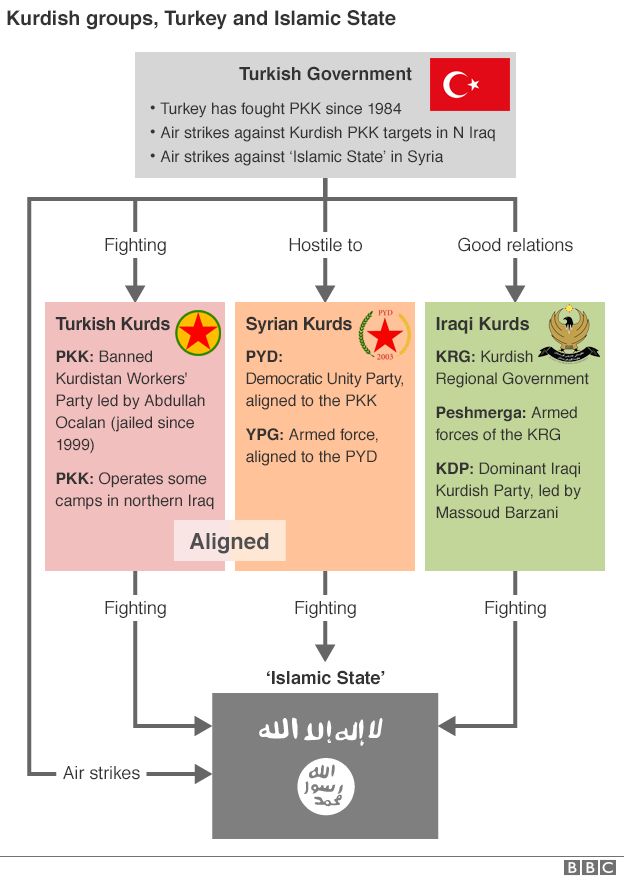
 Russia: ‘Brainwashed by propaganda’.
Russia: ‘Brainwashed by propaganda’.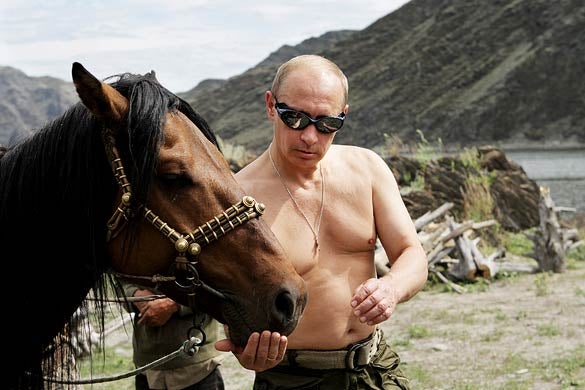 Nobody in Russia believes Putin has floppy old man boobs, but it is plain to see. The Russian press, however, will never tell the truth. Putin can’t afford to allow the Russian public to see the truth.
Nobody in Russia believes Putin has floppy old man boobs, but it is plain to see. The Russian press, however, will never tell the truth. Putin can’t afford to allow the Russian public to see the truth.






 Russian PM Medvedev was recently in Munich, at the
Russian PM Medvedev was recently in Munich, at the 





























 Freedom in Russia? Not exactly.
Freedom in Russia? Not exactly.
 By
By 




 All hail, twitter user
All hail, twitter user  Russia’s foreign minister has been reduced to a shadow of his formidable (and irascible) self. Why won’t the Kremlin put him to better use?
Russia’s foreign minister has been reduced to a shadow of his formidable (and irascible) self. Why won’t the Kremlin put him to better use? By
By 
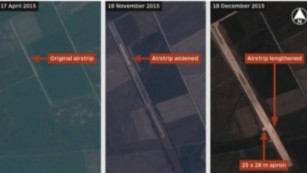
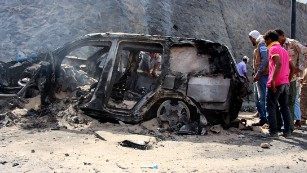




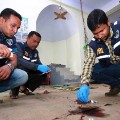

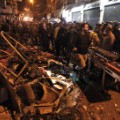
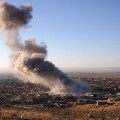
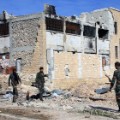

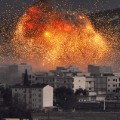

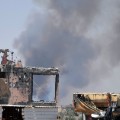

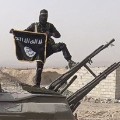

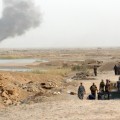




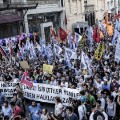
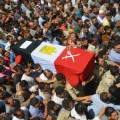
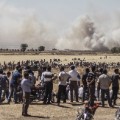



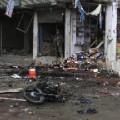


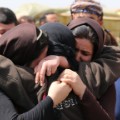
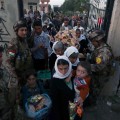



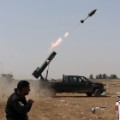

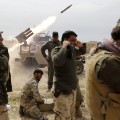



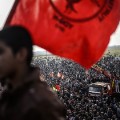



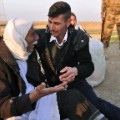
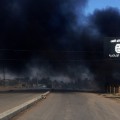
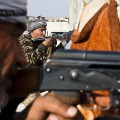

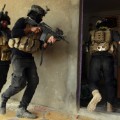
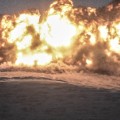

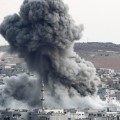















 BC, Riga, 18.02.2016
BC, Riga, 18.02.2016 In the latest sign that China’s long-touted “opening up” is reversing into a “closing down,” a Chinese ministry has issued new rules that ban any foreign-invested company from publishing anything online in China, effective next month.
In the latest sign that China’s long-touted “opening up” is reversing into a “closing down,” a Chinese ministry has issued new rules that ban any foreign-invested company from publishing anything online in China, effective next month. Since the start of the war in Ukraine, Kremlin media and officials have tried to shape it as an internal conflict in which Russia plays no part. While Western media admit vast Russian aid to the so-called “separatists,” they still largely use such terms as “rebels” and “government troops,” unwittingly contributing to the Kremlin’s civil war narrative. This is understandable, since this manufactured conflict is shaped to look like a bona fide civil war, with Russia denying its involvement save for the “volunteers” on vacation who choose to fight for the “separatists” in Donbas. Yet there are several facts demonstrating that this war is not an internal Ukrainian conflict.
Since the start of the war in Ukraine, Kremlin media and officials have tried to shape it as an internal conflict in which Russia plays no part. While Western media admit vast Russian aid to the so-called “separatists,” they still largely use such terms as “rebels” and “government troops,” unwittingly contributing to the Kremlin’s civil war narrative. This is understandable, since this manufactured conflict is shaped to look like a bona fide civil war, with Russia denying its involvement save for the “volunteers” on vacation who choose to fight for the “separatists” in Donbas. Yet there are several facts demonstrating that this war is not an internal Ukrainian conflict. Information Operations. Public Diplomacy. Strategic Communication. Information Warfare.
Information Operations. Public Diplomacy. Strategic Communication. Information Warfare.







